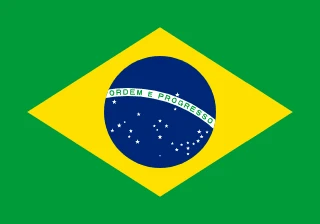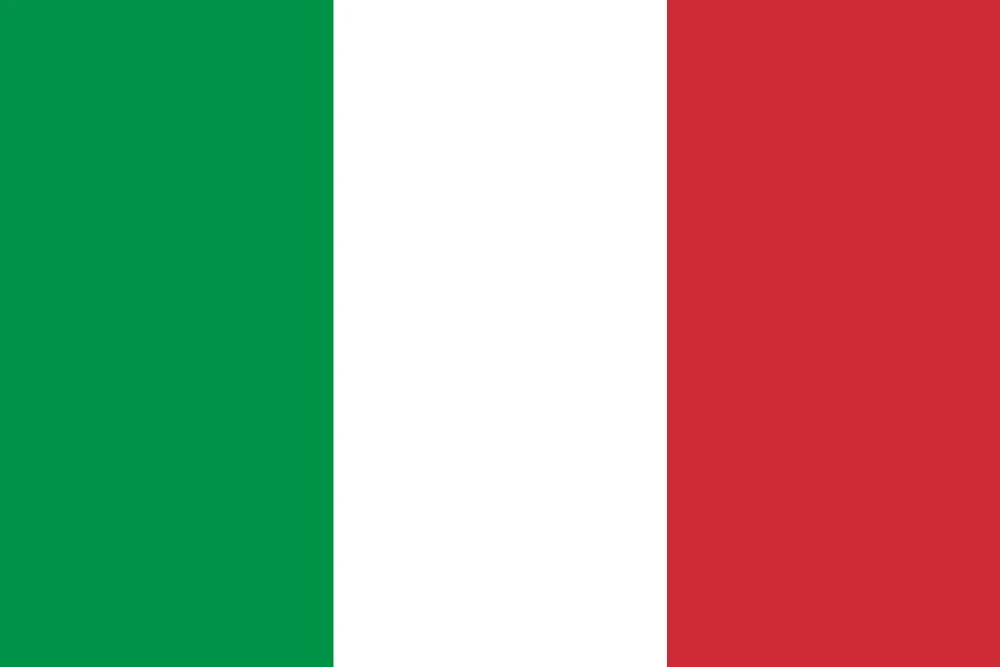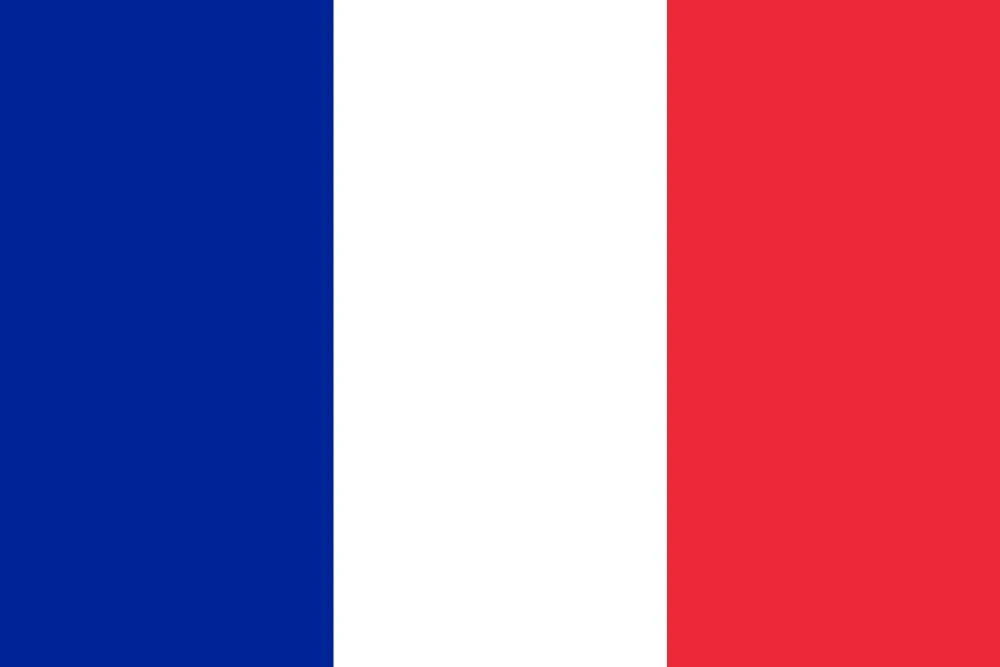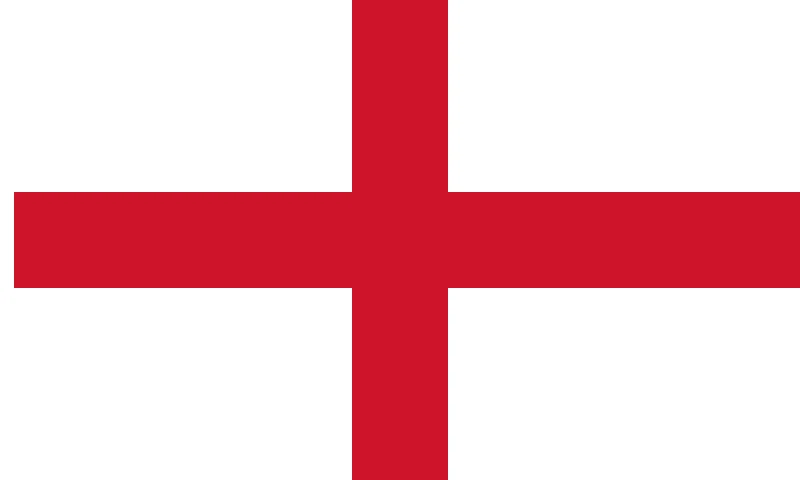1. Brazil’s Samba Hits a Wall
June 27, 2006. The Allianz Arena in Munich, a stadium packed with 66,000 fans, witnessed a football clash that would become one of Brazil’s most heartbreaking defeats. Brazil, reigning champions and the undisputed favorites to lift the World Cup once again, strutted out to face France in the quarterfinals. With stars like Ronaldo, Ronaldinho, and Kaká in their ranks, Brazil’s samba football was a freight train tearing through the tournament.
Having breezed through the group stage—1-0 against Croatia thanks to a stunning Kaká strike, 2-0 against Australia with Adriano’s scrappy goal, and a 4-1 demolition of Japan with Ronaldo’s brace that saw him break Gerd Müller’s World Cup scoring record—Brazil looked untouchable. In the knockout rounds, they powered past Ghana 3-0 with Ronaldo on the score sheet once more. “We’re rolling,” said coach Carlos Alberto Parreira with a satisfied grin, sipping his drink. Brazil had four wins, ten goals, and a sense of destiny about them.
But then, there was France. Led by Zinedine Zidane, with Thierry Henry lurking and the formidable Patrick Vieira holding the midfield together, the French seemed a different breed altogether. Brazil started brightly—Ronaldinho weaving magic, Kaká pulling the strings—but France’s midfield, led by Claude Makélélé and Vieira, closed down Brazil’s flair. In the 57th minute, Zidane swung in a free-kick that found the head of Henry, ghosting past Roberto Carlos. The volley was perfect—1-0 to France.
From that moment on, Brazil floundered. The samba rhythm that had danced through the tournament was gone. Ronaldo couldn’t find the ball, Ronaldinho’s tricks were muted by the French defense, and Brazil’s attacking line, usually so potent, now seemed strangely impotent. They fired eight shots, but none hit the target. "They choked us," Ronaldo would later admit in frustration.
As the final whistle blew, the Brazilian faithful—waving yellow shirts in disbelief—sank into their seats. France’s blue-clad players celebrated, the air thick with an eerie sense of what could have been. “We had it all,” Kaká muttered, shaking his head. The clips played on the TV screens: Japan’s blitz, Henry’s dagger. But the magic was gone, and Brazil’s dream of a sixth title ended in the shadow of French resilience.
“It was Zidane’s magic that got us,” Parreira said over a pint later. “We couldn’t break them down.” Brazil’s samba had fizzled out, and in its place, the French steel had cut deep. In a bar filled with fans, the question echoed: “What happened to Brazil?” The team had appeared unstoppable, but their ambition was halted by a defense that simply refused to break.
As the Brazilian squad shuffled off the field, Ronaldo’s words echoed: “Our stumble,” a line that would haunt the ‘06 campaign for years to come. Their performance in Munich, as dazzling as it was disappointing, marked a painful end to what many believed could have been the best World Cup side in history. France had done what few expected: they shut down Brazil’s samba, leaving them with nothing but heartbreak.

2. Italy’s Steel Snags the Crown
July 9, 2006—Berlin’s Olympiastadion, 69,000 fans packed into the stands, their voices united in a fever pitch as Italy faced France in the World Cup final. The stage was set for a showdown between two of Europe’s finest, but Italy were not here to play. This was a squad forged in steel—no frills, just pure grit and determination. Under Marcello Lippi, Italy had gone from strength to strength, dispatching Ghana 2-0 in their opener, before scrapping through a 1-1 draw with the USA and a 2-0 win over the Czech Republic. The knockout rounds were just as intense: a 1-0 victory over Australia, Francesco Totti’s coolly converted penalty in stoppage time, then a 3-0 masterclass against Ukraine, and a dramatic 2-0 win over Germany in the semifinal with Fabio Grosso’s extra-time wonder goal.
Now, with a spot in the final secured, Italy were ready to prove their worth. The final was a tight affair. Zinedine Zidane, ever the mastermind, opened the scoring for France with a penalty in the 7th minute—cool, calm, and collected as ever. But Italy’s response was swift. In the 19th minute, Marco Materazzi rose above the French defenders to meet Andrea Pirlo’s corner with a powerful header. The match was now tied, and the tempo escalated. Both teams traded shots, but neither could find a breakthrough, and the game crawled toward extra time.
Then, in the 110th minute, a moment of madness. Zidane, the hero of the tournament, lost his cool. Materazzi, who had exchanged words with the French captain earlier in the game, said something that set Zidane off. The French playmaker charged toward him, and with a moment of insane clarity, headbutted the Italian defender in the chest. Red card. Zidane was off, his World Cup dream shattered in the cruelest of ways.
Italy, led by the indomitable Gianluigi Buffon in goal and a defense marshaled by the legendary Fabio Cannavaro, now had the upper hand. The match went to penalties, and Italy’s nerve held strong. Andrea Pirlo, Marco Materazzi, Daniele De Rossi, and Alessandro Del Piero each slotted their penalties home with composure, while France’s David Trezeguet hit the crossbar. Italy were champions once again, 5-3 on penalties, sealing their fourth World Cup.
The streets of Berlin erupted as Italy’s players were lifted on the shoulders of their fans, and the Azzurri were crowned champions. Buffon’s voice rang out: “For the people,” he declared, a phrase that embodied the squad’s blue-collar mentality. The pub chatter back home was electric—was this Italy’s best defense ever? Was this their greatest team? “They don’t break,” said Thierry Henry, who had witnessed Italy’s unyielding wall firsthand. Italy had done it—grit, steel, and a few clinical moments under pressure.
As the celebrations continued, Fabio Cannavaro’s words still rang true: “We’re made of steel.” And for a team that had mastered the art of defense, the summer of 2006 would forever be remembered as Italy’s triumph, born not just from skill, but from the unbreakable resolve of a squad that was never, ever going to back down.

3. Zidane’s Bonkers Berlin Exit
July 9, 2006. Berlin’s Olympiastadion, a stadium packed to the brim with anticipation, witnessed one of the most shocking moments in World Cup history. Zinedine Zidane, the man who had defined France’s World Cup journey, was about to play in his final game for Les Bleus—a showdown with Italy in the final. Zidane had been sublime all tournament long: a calm penalty against Portugal in the semifinals, a free-kick that set up Thierry Henry in the quarterfinals against Brazil, and a genius performance in the 3-1 victory over Spain in the round of 16. His Golden Ball-winning performances had been the heartbeat of France’s campaign.
Seven minutes into the final, Zidane confirmed his status as a legend. A penalty against Gianluigi Buffon—a cool, almost casual chip—put France 1-0 ahead. But Italy weren’t intimidated. In the 19th minute, Marco Materazzi rose above the French defense to head home a corner from Andrea Pirlo, and the match was level at 1-1. What followed was a tense, tactical battle between two proud footballing nations, with both teams struggling to land a telling blow.
Then came the moment that no one could have predicted. In the 110th minute, Zidane and Materazzi exchanged words—what was said remains a mystery—but whatever it was, it sent Zidane into a blind rage. In a moment of pure madness, Zidane charged at Materazzi, planting his head into the Italian defender’s chest with all the force of a wrecking ball. Red card. Zidane, the hero of France, was sent off, walking past the World Cup trophy as his career came to an explosive and unforgettable end.
With France now without their talisman, Italy seized control. The match went to penalties, and while Italy kept their cool, France faltered. David Trezeguet’s penalty clattered against the crossbar, handing Italy the World Cup in a dramatic shootout. The final whistle sounded, and as Italy celebrated, Zidane’s exit left a bitter taste in the air.
For Zidane, the game wasn’t just about the loss—it was about that shocking headbutt, the explosive moment that overshadowed his legendary career. "I lost it," Zidane admitted afterward, his voice tinged with regret. “It was my last game, and I let it all slip away.” France had fallen short, and Zidane’s perfect farewell ended in chaos. The pubs, the fans, the world—it was the story no one saw coming, and one that would be told for decades to come.
Zidane’s exit—wild, emotional, and undeniably human—was the final twist in what had been an unforgettable tournament. His career was a masterpiece, but that final moment in Berlin? It was a thunderclap in the football world—a symbol of how even the greatest can falter. And so, Zidane’s legacy ended in both glory and madness, forever etched in football folklore.

4. Germany Throws a Summer Bash
July 8, 2006. Berlin's Olympiastadion is buzzing with excitement, alive with the rhythm of 72,000 fans as Germany takes on Portugal in the World Cup third-place playoff. The tournament has been an exhilarating ride for the host nation, who, despite falling short in the semifinals against Italy, have already carved their name into this summer’s memories. Their journey through the competition has been nothing short of spectacular: a 4-2 victory over Costa Rica, with Miroslav Klose netting a brace, a tight 1-0 win against Poland thanks to Oliver Neitzel’s 91st-minute screamer, and a commanding 3-0 triumph over Ecuador, once again seeing Klose’s poaching instincts come to the forefront.
In the quarterfinals, Germany’s resilience shone through as they battled past Argentina in a penalty shootout, Jens Lehmann’s gloves turning golden with two saves. The semifinals against Italy, however, were a cruel blow—a heartbreaking 2-0 loss after Fabio Grosso’s extra-time curler sent the Italians to the final. “We’re the party,” Germany's coach Jürgen Klinsmann had declared with a grin earlier in the tournament. The hosts had four wins, one loss, 14 goals, and their spirit was still high as they prepared for one last hurrah.
Portugal, on the other hand, had navigated their own path to this point with plenty of flair, powered by the likes of Cristiano Ronaldo and Luís Figo. They had proven themselves against tough competition—beating Angola 1-0, sweeping Iran 2-0, and edging past Mexico 2-1. A brutal 1-0 win over the Netherlands in the round of 16, a match full of tension and red cards, had set up a quarterfinal clash with England. That match ended 0-0 after 120 minutes, and Portugal triumphed 3-1 in a penalty shootout. But, just as it seemed they were on the brink of greatness, they were knocked out 1-0 by France in the semifinals, Zidane’s penalty proving to be too much.
In this final bout for third place, Germany were relentless. The hosts came out flying in the 56th minute when Bastian Schweinsteiger unleashed a stunning long-range shot that left Portugal goalkeeper Ricardo rooted to the spot. Just five minutes later, disaster struck for Portugal as midfielder Petit scored an own goal, inadvertently turning a cross into his own net. Schweinsteiger wasn’t done, though—he was back at it in the 78th minute, adding a second for himself with a beautifully placed shot that rocketed past Ricardo.
As the match wound down, Nuno Gomes grabbed a consolation goal for Portugal in the 88th minute, but it was too little, too late. The final whistle blew, sealing a 3-1 victory for Germany, who had claimed the bronze medal. “We lit it up,” Klose roared as his team celebrated. The win not only secured third place but also saw Klose bag the Golden Boot, finishing the tournament with five goals.
The atmosphere in the stadium was nothing short of electric. The German faithful waved flags in black, red, and gold, filling the air with joy and pride. The victory was a testament to their team's fight and spirit. “For the fans,” Schweinsteiger shouted, his face beaming with pride, as clips of Argentina’s penalty shootout victory and Klose’s fiery performances played in the background.
Over a pint, Klinsmann reflected on the tournament’s highs and lows: “We may not have made it all the way to the final, but we gave our fans a summer to remember.” In the pubs and the streets, Germany’s third-place finish was still seen as a significant achievement. “We’ve got the guts,” said Portugal's coach Luiz Felipe Scolari, giving credit where it was due to the host nation's resilience.
As the celebrations continued, it was clear this summer belonged to Germany. “Our summer,” Klose mused, a content smile on his face. It was a party that echoed through the streets of Berlin, an unforgettable chapter in the story of the 2006 World Cup. While the golden prize eluded them, the hosts had proven that they were a force to be reckoned with for years to come.

5. England’s Penalty Curse Bites Again
Gelsenkirchen, July 1, 2006. The quarterfinals of the World Cup, and England’s golden opportunity is on the line. With 52,000 spectators crammed into the stadium, the tension is palpable as Sven-Göran Eriksson’s squad faces Portugal, a team they’ve tangled with before in major tournaments. England’s journey to this point had been a rollercoaster, but they were alive—just barely. Their group stage performance was solid, earning a narrow 1-0 win over Paraguay thanks to an own goal, a 2-0 victory against Trinidad and Tobago with Peter Crouch's gangly header, and a thrilling 2-2 draw with Sweden, highlighted by Joe Cole’s stunning 30-yard strike.
In the round of 16, England scraped past Ecuador 1-0, thanks to David Beckham’s curling free-kick. But now came the big test: Portugal, led by the ever-dangerous Cristiano Ronaldo and a formidable midfield anchored by Deco and Luís Figo. The stakes were high. England’s Wayne Rooney, fueled by a fiery determination, clashed with Portugal’s Ricardo Carvalho early in the game, earning himself a red card in the 62nd minute for a reckless stomp. Tempers flared, and the match descended into a battle of nerves.
The game ended 0-0 after extra time, and England’s haunting penalty shootout curse began to rear its ugly head. Frank Lampard stepped up first—his shot saved. Viana missed for Portugal, but England’s Steven Gerrard saw his penalty saved too. Simão made no mistake for Portugal, slotting his shot calmly. Then, Jamie Carragher had his penalty saved after a retake controversy. Ronaldo, with ice in his veins, sealed the deal, scoring the winning penalty for Portugal, 3-1.
“Same old curse,” Beckham groaned, his disappointment clear as the reality of another missed opportunity hit home. England’s dreams had once again ended in the cold embrace of penalty heartbreak. The pubs were filled with chatter: replays of Sweden’s fight, Ricardo’s heroics, and that devastating moment of missed glory.
“We were gutsy,” said a dejected Steven Gerrard. The England faithful slumped, their hopes dashed once again. For Eriksson, the reality was painfully familiar. “It’s just one of those things,” he muttered, shaking his head over a pint. The long shadow of England’s 1966 triumph seemed more distant than ever as the pain of this World Cup exit lingered.
“It’s a scar that won’t fade,” Beckham admitted. The penalty curse—the albatross that had been around England’s neck for decades—had struck again, leaving them with the familiar sting of near-miss heartbreak. Ronaldo, meanwhile, grinned. “We’re golden,” he said, his calm demeanor a sharp contrast to England’s frustration. It was another classic chapter in England’s painful World Cup history.

6. Portugal’s Scrappy Fight
Berlin, July 8, 2006. As the sun blazed over the Olympiastadion, 72,000 fans settled into their seats for Portugal’s third-place showdown against Germany. Portugal, led by Luiz Felipe Scolari, had delivered a series of gritty performances throughout the tournament. After winning their group with victories over Angola, Iran, and Mexico, they scraped past the Netherlands in a chaotic 1-0 win in the round of 16, before conquering England in a penalty shootout in the quarterfinals. But their hopes of reaching the final were dashed by a 1-0 loss to France, with Zidane’s calm penalty proving to be the difference.
Despite the defeat, Portugal had already earned respect for their resolute fighting spirit. Against Germany, however, it wasn’t to be their day. The match started with promise, but the Germans were relentless. Bastian Schweinsteiger opened the scoring in the 56th minute with a fantastic strike from distance. Five minutes later, Portugal’s Petit turned the ball into his own net, giving Germany a comfortable 2-0 lead. Schweinsteiger wasn’t done, though—he found the net again in the 78th minute, making it 3-0. Portugal did pull one back through Nuno Gomes in the 88th minute, but it wasn’t enough to mount a comeback. Germany won 3-1, sealing third place.
Portugal, however, could hold their heads high. “We gave it all,” said Ronaldo, whose performance throughout the tournament had been nothing short of electrifying. The fans may have been disappointed, but they were proud of the team's determination and grit. “We scrap,” Scolari had said earlier, and it was clear that Portugal’s dogged resilience had earned them respect.
Over a pint, coach Scolari and his players reflected on a journey filled with highs and lows. “We fought for every inch,” Deco said, raising his glass. “And we’re not done yet.” Despite finishing fourth, Portugal’s 2006 World Cup run was a testament to their strength and character. Their future looked bright, and their battle-tested squad had shown that they would be a force to be reckoned with for years to come.
“It’s been a tough ride,” said a deflated Ronaldo, but there was fire in his words. Portugal had scrapped, they had fought, and they had earned their place among the best teams in the world. Their summer may have ended with disappointment, but their story was far from over.
